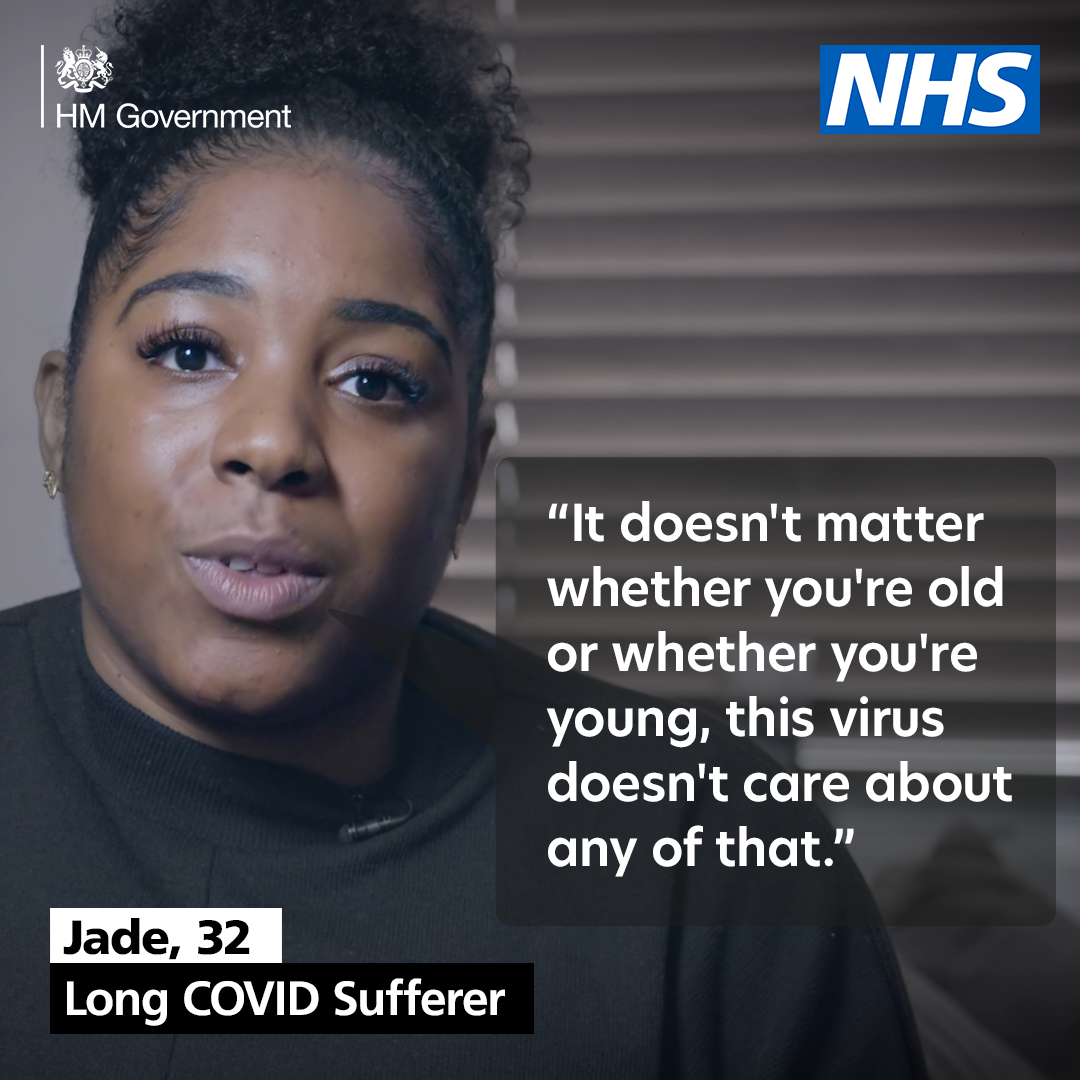
New data suggests long COVID affects around 10% of 18-49 year olds who become unwell with COVID-19
The Health Secretary is urging the public – and especially young people – to follow the rules and protect themselves and others from COVID-19, as new data and a new film released today reveal the potentially devastating long-term impact of the virus.
The symptoms of ‘long COVID’ – including fatigue, protracted loss of taste or smell, respiratory and cardiovascular symptoms and mental health problems – are described in a new film being released today as part of the wider national Hands, Face, Space campaign. The film calls on the public to continue to wash their hands, cover their face and make space to control the spread of the virus.
The emotive film features the story of Jade, 32, who explains how her life has been affected – weeks and months after being diagnosed with COVID-19. “I wake up with a headache every single morning, I don’t feel like my brain is working the same way anymore. Day to day tasks at home are tough. It can wipe me out just doing basic things”
A new study today from King’s College London, using data from the COVID Symptom Study App and ZOE, shows one in 20 people with COVID-19 are likely to have symptoms for 8 weeks or more. The study suggests long COVID affects around 10% of 18-49 year olds who become unwell with COVID-19.
Public Health England have found that around 10% of COVID-19 cases who were not admitted to hospital have reported symptoms lasting more than four weeks and a number of hospitalised cases reported continuing symptoms for eight or more weeks after discharge.
Health and Social Care Secretary Matt Hancock said:
“I am acutely aware of the lasting and debilitating impact long COVID can have on people of all ages, irrespective of the seriousness of the initial symptoms. The findings from researchers at King’s College London are stark and this should be a sharp reminder to the public – including to young people – that COVID-19 is indiscriminate and can have long-term and potentially devastating effects”
Dr Seun Bakare, Northwest Urgent Care GP, said:
“Most people recover from COVID 19 without needing specialist treatment and for the majority symptoms will clear just after 14 days. However, for some the symptoms continue for weeks and months, if people are suffering with breathlessness, muscular pain and fatigue then they must speak to their GP and get a diagnosis”
The Government is committed to supporting people suffering long-term symptoms of COVID-19. The NHS recently announced £10 million to run designated long COVID clinics in every area across England where specialists and GPs will all help assess, diagnose and treat thousands of people who have reported symptoms ranging from breathlessness, chronic fatigue, “brain fog” to anxiety and stress.
If you are suffering from any long-term symptoms or health problems after recovering from COVID-19, speak to your GP, call 111 or check the Your Covid Recovery website – an online COVID recovery resource for patients.






